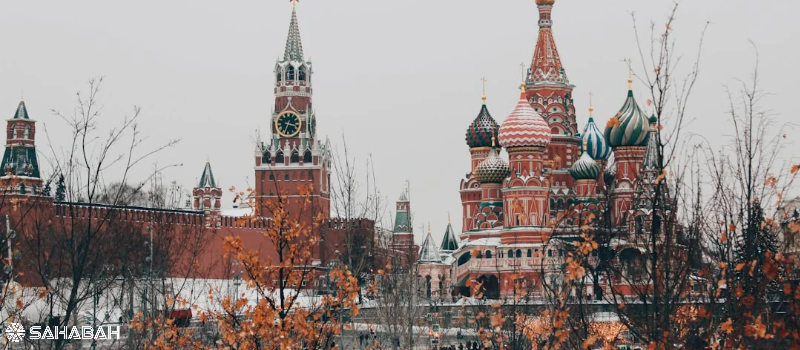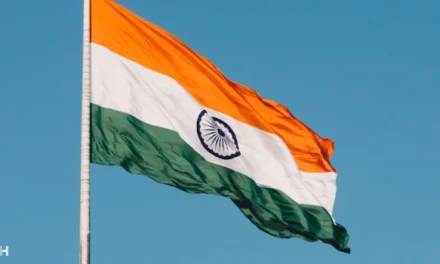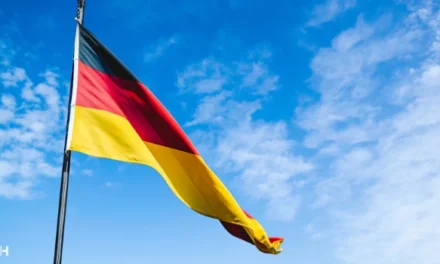The relationship between Russia and Israel has been a complex and ever-evolving one, shaped by a myriad of geopolitical, economic, and historical factors. As two influential players on the global stage, the dynamics between these two nations have far-reaching implications for the broader Middle East region and beyond.
Understanding Russia’s Stance Towards Israel
Russia’s historical relationship with Israel has been marked by both cooperation and tension. Since the establishment of the State of Israel in 1948, the two countries have navigated a delicate balance, with periods of closer ties and moments of strained relations.
One of the key factors influencing Russia’s position on Israel is its desire to maintain a strategic foothold in the Middle East. Russia has long sought to exert its influence in the region, and its involvement in conflicts such as the Syrian civil war has brought it into closer proximity with Israel. However, Russia’s support for groups like Hamas and Hezbollah, which are considered terrorist organizations by Israel, has been a source of tension between the two countries.
Russia’s Involvement in the Middle East Conflict
Russia’s role in the Israeli-Palestinian conflict has been a complex and often controversial one. While Russia has at times sought to play a mediating role, it has also been accused of supporting the interests of groups like Hamas, which have engaged in violent attacks against Israel.
The impact of Russia’s involvement on the peace process has been a subject of much debate. Some argue that Russia’s presence in the region has complicated efforts to find a lasting solution, while others believe that Russia’s influence could be leveraged to bring the parties closer together.
Analyzing Russia’s Strategic Interests in the Middle East
Russia’s strategic interests in the Middle East extend beyond its relationship with Israel. The region’s vast energy resources and geopolitical importance have made it a key focus of Russian foreign policy. Russia’s desire to maintain influence in the Middle East is driven by a range of factors, including economic considerations, regional power dynamics, and the need to counter Western influence in the region.
In this context, Israel’s position as a regional power and its close ties with the United States have made it an important player in Russia’s regional strategy. While Russia and Israel have found areas of cooperation, such as in the field of counterterrorism, the two countries have also clashed over issues like the Israeli-Palestinian conflict and Russia’s support for Iran.
Exploring the Complexities of Russia-Israel Relations
The relationship between Russia and Israel is marked by a complex web of cooperation and tension. On one hand, the two countries have found common ground in areas such as energy, trade, and counterterrorism. However, their divergent interests in the Middle East, particularly when it comes to the Israeli-Palestinian conflict and the role of Iran, have been a source of ongoing friction.
The impact of regional alliances and rivalries, such as the tensions between Iran and Israel, have also played a significant role in shaping the dynamics between Russia and Israel. As the geopolitical landscape in the Middle East continues to evolve, the future of Russia-Israel relations remains uncertain, with the potential for both further cooperation and increased conflict.
Evaluating the Implications of Russia’s Stance Towards Israel
Russia’s stance towards Israel has far-reaching implications for the broader geopolitical landscape. The potential consequences of Russia’s position on issues like the Israeli-Palestinian conflict and its support for groups like Hamas could have a significant impact on regional stability and security.
Moreover, Russia’s involvement in the Middle East, including its support for the Assad regime in Syria and its ties with Iran, have raised concerns about the potential for escalating tensions and even the outbreak of wider regional conflicts. The influence of Russia’s stance on international diplomacy and negotiations, particularly in the context of the Israeli-Palestinian peace process, is also a crucial consideration.
Perspectives from Experts and Analysts
Experts and analysts have offered a range of perspectives on the complexities of Russia’s relationship with Israel. Some argue that Russia’s involvement in the Middle East is primarily driven by its desire to assert its global influence and counter Western dominance in the region. Others believe that Russia’s stance towards Israel is more nuanced, with a mix of strategic interests and ideological considerations at play.
Predictions and forecasts for the future of Russia-Israel relations vary widely, with some experts anticipating a continued period of tension and conflict, while others see the potential for increased cooperation and even a shift in Russia’s approach to the Israeli-Palestinian conflict.
Conclusion: Navigating the Nuances of Russia’s Relationship with Israel
The relationship between Russia and Israel is a complex and multifaceted one, shaped by a range of historical, geopolitical, and strategic factors. As the two countries navigate this dynamic landscape, it is crucial to understand the nuances and underlying motivations that drive their interactions.
Whether it is Russia’s involvement in the Middle East conflict, its strategic interests in the region, or the impact of its stance on international diplomacy, the relationship between Russia and Israel will continue to be a crucial factor in shaping the broader geopolitical landscape. By exploring these complexities and engaging in informed discussions, we can better understand the challenges and opportunities that lie ahead for these two influential nations.
FAQ: Does Russia Support Israel?
Russia has historically maintained warm relations with Israel. However, Russia’s involvement in geopolitical issues, such as the conflict in Ukraine and its ties with Iran, can impact its support for Israel.
How does the Israel-Hamas war affect Russia’s stance towards Israel?
The Israel-Hamas conflict can strain relations between Russia and Israel, as Russia has interests in the region and may support different parties involved in the conflict.
What is the current position of Moscow regarding Israel?
Moscow’s stance on Israel can vary based on several factors, including its relationships with other countries like Iran and its own geopolitical interests in the Middle East.
Are there any predictions on how Russian-Israeli relations will evolve by 2023?
Predictions on the future of Russian-Israeli relations by 2023 are speculative, as they will be influenced by various geopolitical events and developments in the region.
How does the invasion of Ukraine impact Russia’s stance towards Israel?
The invasion of Ukraine can influence Russia’s relations with Israel, as international reactions to Russia’s actions may affect its foreign policy decisions, including those concerning Israel.
Is there a connection between Russia, Iran, and Israel in terms of international law?
The interactions between Russia, Iran, and Israel in international law can be complex, as each country may have differing interpretations and applications of legal principles in their relations with one another.
What role does Russian President Vladimir Putin play in relations with Israel?
President Putin’s foreign policy decisions towards Israel are significant, as his personal stance and actions can shape Russia’s overall approach to its relations with Israel.
FAQ: Does Russia support Israel?
Russia has maintained diplomatic relations with Israel, but its support for Israel has been limited due to its alliances and interests in the region.
How has the Israel-Hamas war affected Russia’s stance towards Israel?
The Israel-Hamas war has strained Russia’s relations with Israel as Moscow has historically aligned itself with Palestinian causes.
What is the current position of Russia on the Ukrainian crisis?
Russia’s invasion of Ukraine in 2023 has led to international condemnation and sanctions on Russia.
Is there any connection between Russia and Iran regarding their stance on Israel?
Russia and Iran have both been critical of Israel’s actions in international law, but their approaches may differ based on their individual interests in the region.
How does the Russian President Vladimir Putin view Israel?
Putin’s stance towards Israel is influenced by geopolitical considerations, and it can vary depending on the situation and Russia’s relations with other Middle Eastern countries.
What are the implications of the Israel-Hamas war on Russia’s relations with the West?
The Israel-Hamas war has caused tensions between Russia and the West, leading to discussions on imposing sanctions on Russia for its stance on the conflict.
What role has the Carnegie Russia Eurasia Center played in analyzing Russia’s stance towards Israel?
The Carnegie Russia Eurasia Center has provided insights into how Russia is turning increasingly hostile towards Israel amidst regional conflicts.





